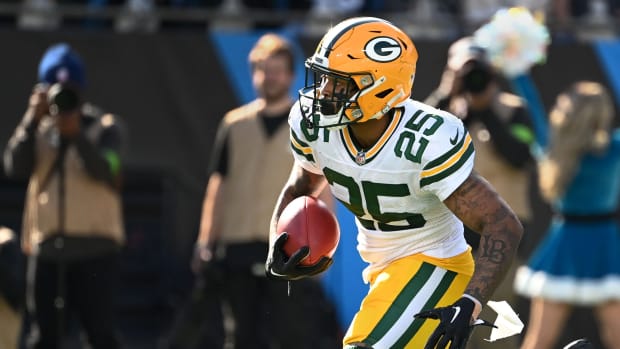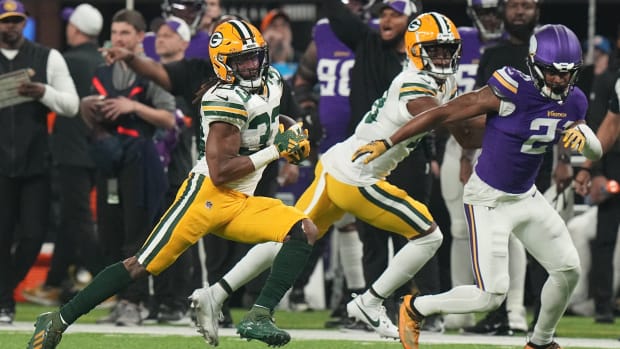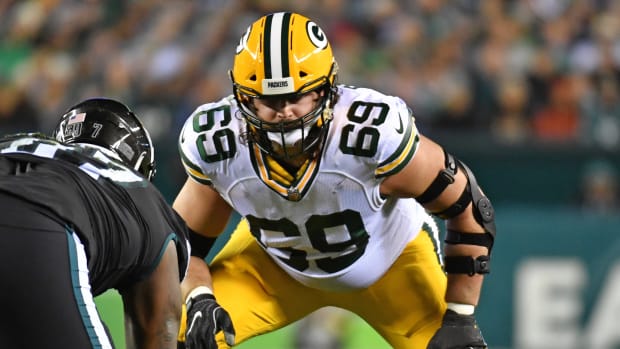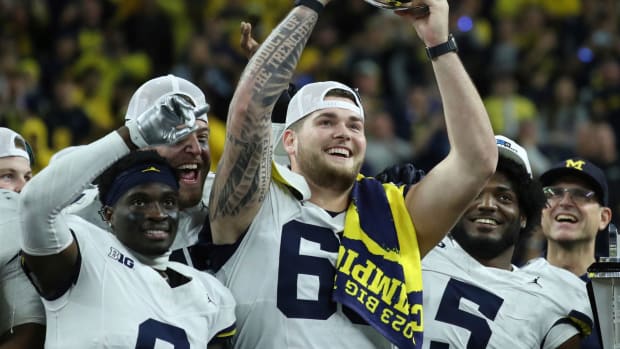Black Track Athletes Share Their Encounters with Racism in America
For Wednesday’s SI.com Daily Cover, Chris Chavez reached out to 14 black track and field athletes, asked a series of three questions and listened. The participants:
• Dalilah Muhammad, 400-meter hurdles world record holder, Olympic champion and world championship gold medalist
• Will Claye, 6x world championship medalist, 3x Olympic medalist
• Michael Norman, 2021 Olympic 400 meter gold favorite
• Mohammed Ahmed, 2019 world championship 5000 meter bronze medalist
• Grant Holloway, 2019 world championship 110-meter hurdles gold medalist
• Aleec Harris, 2017 U.S. 110-meter hurdles champion
• Shamier Little, 2015 400-meter hurdles world championship silver medalist
• Marielle Hall, long distance runner and 2016 Olympian
• Rai Benjamin, 2019 400-meter hurdles world championship silver medalist
• Aisha Praught-Leer, 2018 Commonwealth Games steeplechase gold medalist
• Darrell Hill, 2016 Olympian, shot put
• Raevyn Rogers, 2019 world championship 800-meter silver medalist
• Jarrion Lawson, 2017 world championship long jump silver medalist
• Keturah Orji, 2016 U.S. Olympian and triple jump U.S. record holder
This story is from Ahmed, who competed at Wisconsin.
During my time at the University of Wisconsin-Madison, the Ferguson riots happened and they had an indelible impact on how I thought about my interaction with the police. I’ve only been stopped by the police once.
In 2016, my teammates and I went back to Madison to do some heat and humidity training before the Olympics in Rio. We were staying in Middleton, which is 15 to 20 minutes outside of Madison. I asked if I could take the car to State Street and reminisce some of my old days. I went and dined at my favorite restaurant and walked around. When it was time to go back, I took a glimpse of Camp Randall Stadium and my old neighborhood from my five years in the city. I pulled over and slowly drove through my neighborhood for 10 minutes or so. Then, I got on the road and left.
Within one or two minutes of being on the road, sirens start blaring. There were a number of cars near me and I figured it was for something that happened somewhere so I pulled over. All of a sudden, I saw the police officer come up right behind me.
I couldn’t believe it. I wondered if I did something wrong and Ferguson came to mind. I turned off the car, rolled down the window, put my hands up and didn’t say anything. I didn’t know how to interact with the police officer. I don’t think I was speeding but maybe I was five miles over the limit.
He asked me a number of questions, including, “What were you doing driving around that area?” So I determined he had been following me for at least 20 to 30 minutes. I felt like I had not broken any rules, but I remember I had trouble with the interaction—this was my first with an officer. At one point, he asked me if I was high or drunk. I said I wasn’t, but he said I seemed flustered.
I was reminded of Ferguson and I recalled in my mind what the police can do. He has a gun. That probably gave me anxiety and so I wasn’t able to speak or articulate as well as I could have. I was shocked to be pulled over like that, but I tried to compartmentalize things in a manner so nothing crazy would happen.
The experience that shaped me more than anything was being detained at the border. Visibly being a person of color, being Muslim, being a Somali and carrying a Muslim name—all of those identities went against me from a very young age. An Ethiopian-Canadian poet named Boonaa Mohammed, who is also Muslim and Black, says in one of his poems, “I’m black and Muslim, everywhere I go someone hates me.”




